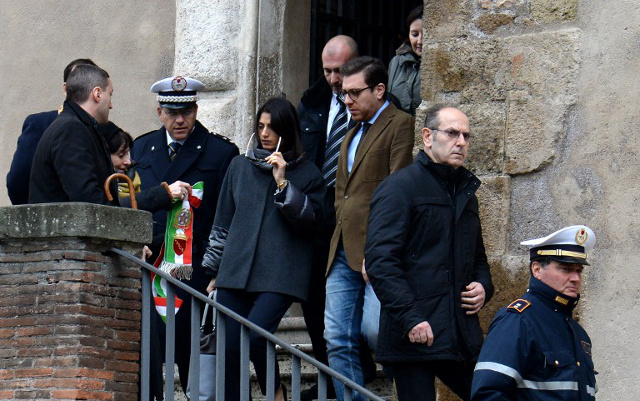The good news is that this was actually an improvement from last year's study, which placed Italy 61st – a climb of eight places from the year before. This made it one of the minority of countries which gained rather than lost points in the report's latest edition.
But it remains the third most corrupt country in the European Union, outdone by only Greece (69th place) and Bulgaria (75th).
Italy shared 60th place with Cuba, with both countries scoring 47 on the 0 (highly corrupt) to 100 (very clean) scale. Since the ranking began, Italy's highest ranking was 41st in 2007, but it dropped as low as 72nd in 2012.
Denmark and New Zealand shared first place, scoring 90 apiece and closely followed by Finland and Sweden, which scored 89 and 88 respectively.
But what does Italy's poor score mean for the country?
Corruption is “closely connected” with inequality, leading both to become “system”, the campaigners wrote.
They also noted that this combination leads to public dissatisfaction with political institutions, and tends to feed populism.
Populism is certainly on the rise in Italy, with the 'anti-establishment' Five Star Movement party, founded by comedian Beppe Grillo, consistently scoring well in the polls. The party won important victories in 2016's mayoral elections, with their candidate Virginia Raggi becoming Rome's mayor after previous holders of the office had become embroiled in corruption scandals.
However, the Five Star Movement itself has recently been implicated in corruption probes, with one of Raggi's closest aides arrested and the mayor called in for questioning this week over one of her appointments. In December, the party leadership stripped her of the power to make “important decisions” independently.
!function(e,t,n,s){var i=”InfogramEmbeds”,o=e.getElementsByTagName(t),d=o[0],a=/^http:/.test(e.location)?”http:”:”https:”;if(/^/{2}/.test(s)&&(s=a+s),window[i]&&window[i].initialized)window[i].process&&window[i].process();else if(!e.getElementById(n)){var r=e.createElement(t);r.async=1,r.id=n,r.src=s,d.parentNode.insertBefore(r,d)}}(document,”script”,”infogram-async”,”//e.infogr.am/js/dist/embed-loader-min.js”);
As a whole, Transparency International said that no nation in the world is doing enough to fight corruption.
“There are no drastic changes in Europe and Central Asia in the Corruption Perceptions Index 2016, with only a few exceptions.
“However, this does not mean that the region is immune from corruption. The stagnation does not indicate that the fight against corruption has improved, but quite the opposite,” Transparency International wrote.
!function(e,t,n,s){var i=”InfogramEmbeds”,o=e.getElementsByTagName(t),d=o[0],a=/^http:/.test(e.location)?”http:”:”https:”;if(/^/{2}/.test(s)&&(s=a+s),window[i]&&window[i].initialized)window[i].process&&window[i].process();else if(!e.getElementById(n)){var r=e.createElement(t);r.async=1,r.id=n,r.src=s,d.parentNode.insertBefore(r,d)}}(document,”script”,”infogram-async”,”//e.infogr.am/js/dist/embed-loader-min.js”);



 Please whitelist us to continue reading.
Please whitelist us to continue reading.
Member comments